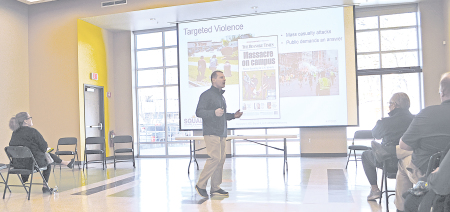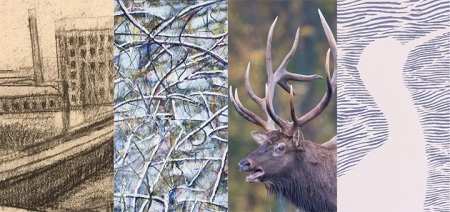Tilting At Windmills: A Myriad Of Meteors
Published:
August 11th, 2023
By:
Shelly Reuben

I am stealing research from one of my own books to describe what is in store for us this weekend, because today, tomorrow, and Sunday are peak periods to watch the Perseids Meteor Showers. This dazzling display of shooting stars occurs as meteors enter the earth’s atmosphere, trailing behind light and color like long tails as they streak across the sky.
Since I knew that before I could write about meteors, I first would have to witness one of these spectacular stellar events, I carefully scrutinized the 25 acres surrounding my house, searching for the darkest spot accessible to my Jeep, from which I could look up at the black, black sky.
As midnight drew near, I packed up a small shag rug, a warm blanket, a pillow – I’m not one to rough it – and a thermos of hot tea. I forgot (of course) my binoculars, my camera, and my flashlight, guaranteeing that if black bears, wolverines, or wild dogs decided to eat me during my vigil, all attempts on their parts to do so would go undocumented.
I drove over little hills and valleys until I arrived at my makeshift observatory, feeling a tingle of apprehension since I was very, very much alone. To my west, tall reeds banked an eerily tinkling creek; beyond the creek were thorny raspberry bushes, lilacs growing wild like teenaged hoodlums, and spindly tangles of scrub oak and shrub dogwood. South of my car were 15 acres of grassland, each blade as tall as Big Foot, intersected by fortress-like hedgerows. To my east the black silhouettes of big-shouldered hydrangea peppered a vast, sloping lawn. And to my north was an 800-foot driveway that, like a moat in a fairytale, seemed to cut me off from the rest of the world.
I extinguished my headlights and opened the door. With only the small overhead interior light to guide me, I spread the shag rug across the hood of the car, propped the blanket and pillow against the windshield, and positioned my thermos beside the blanket.
After I closed the door, the darkness was complete. I climbed onto the Jeep’s hood, leaned back against the pillow, covered myself with the blanket – August nights can get chilly – and looked up at the sky. I more or less stayed like that for three hours.
Contrary to my expectations, the silence was absolute. No howling coyotes. No hooting owls. No rustling of moles, voles, or mice.
In the course of my meteorological research, I had learned these things about the Perseids: they are debris from the Swift-Tuttle comet and radiate from the Perseus constellation, which is two-and-a-half million light years from earth. According to Greek mythology, Perseus, son of Zeus, clad in a helmet of darkness, wearing winged sandals, and wielding an adamantine sword, lopped off Medusa’s head. Now Medusa was not someone you would want to meet in a dark alley, as she was a monster with snaky hair (real, not metaphorical snakes) and she had this nasty habit of turning her enemies to stone.
The best thing about the Perseus constellation, other than its sinister mythology, is its admirable ability to appear to be spitting out meteors.
Now I want to tell you something slightly off-topic but sweetly intriguing about those “twinkle, twinkle” little things in the sky.
Did you ever wonder why stars twinkle? Well, here’s the inside scoop: the process is called “scintillation,” and it occurs after streams of starlight penetrate the earth’s atmosphere and infinitesimally change direction. Imagine that a star of your acquaintance has had a bit too much champagne and rather than walking in a straight line, it staggers. Consequently, instead of shining steadily down on us as would the beady bright eye of a Cyclops, it twinkles.
Like something upon which one can, and should, make a wish.
Here is a bit more about this weekend’s Perseids Meteor Shower.
If you are lucky enough to live near Vestal, New York, you might want to visit the Kopernik Observatory & Science Center, which “has been one of the best-sited and best equipped public observatories in the Northeast United States for nearly 50 years.” This weekend, weather permitting – and I’m still quoting from the website – “The Perseid Meteor Shower is one of the best meteor showers to observe, producing up to 60 meteors per hour! ... Grab a lawn chair or blanket and head up to Kopernik’s dark skies for great viewing, especially after midnight. Visit www.kopernik.org or call (607) 748-3685 after 5 p.m. to confirm that Kopernik will be open for viewing.”
If you are elsewhere in the country and still (of course you do!) want to witness the galactic splendor of these shooting stars, I’m sure that an Internet search will direct you to a nice, dark, romantic spot where you can spread out your blanket, uncap your thermos of tea, and gaze heavenward.
And as you watch those meteors flash across the sky, remember the immortal words that Jiminy Cricket sang to Pinocchio,
“When you wish upon a star
Makes no difference who you are
Anything your heart desires
Will come to you.”
Copyright © Shelly Reuben, 2023. Shelly Reuben’s books have been nominated for Edgar, Prometheus, and Falcon awards. For more about her writing, visit www.shellyreuben.com
Author: Shelly Reuben - More From This Author
Comments








